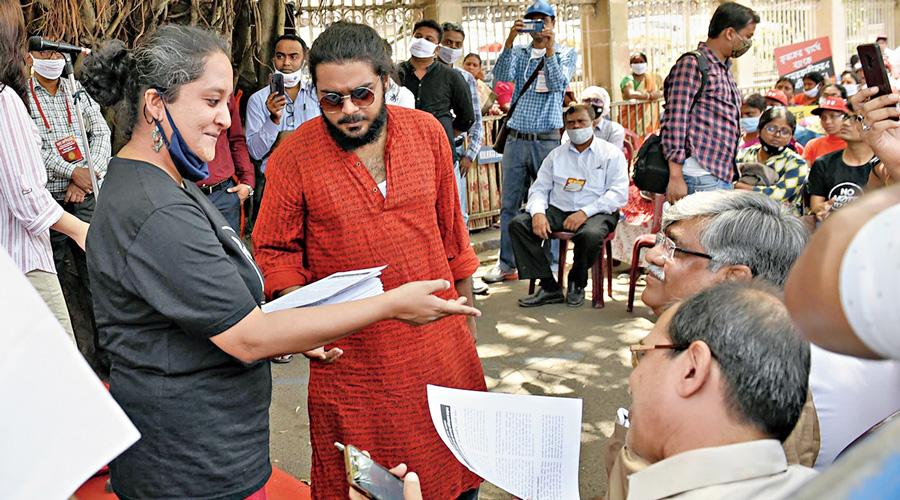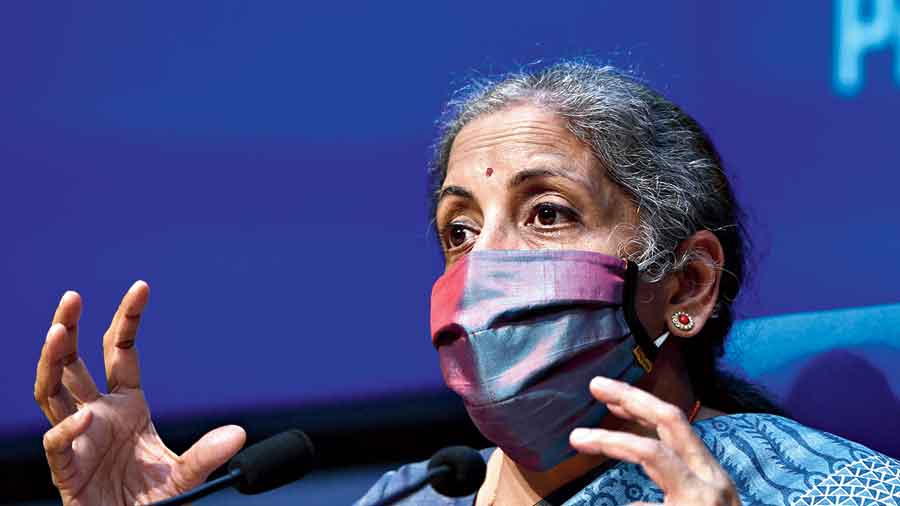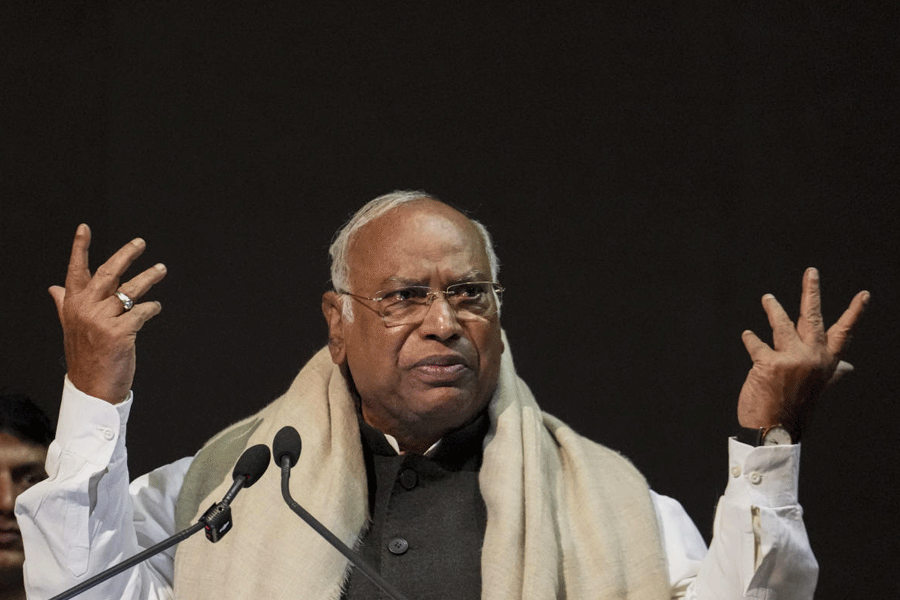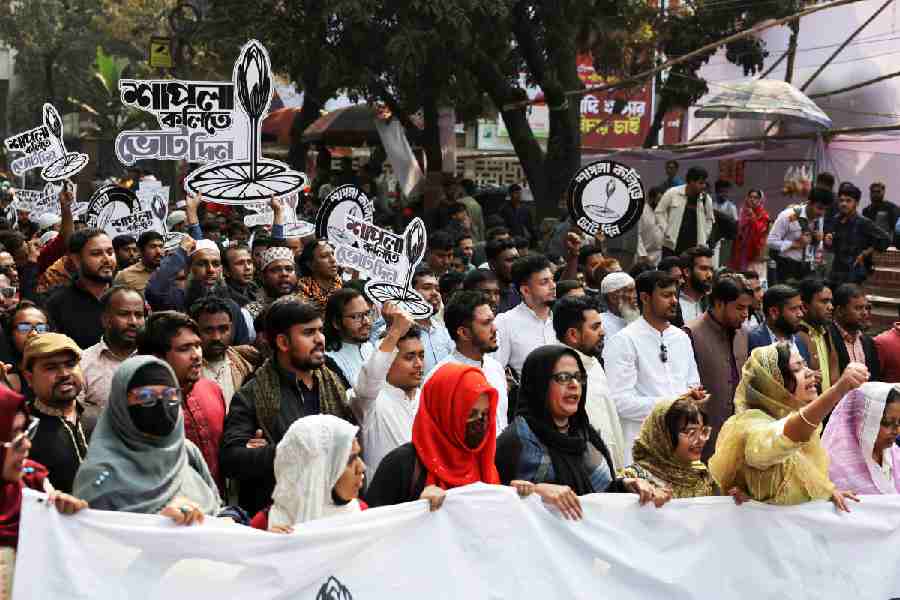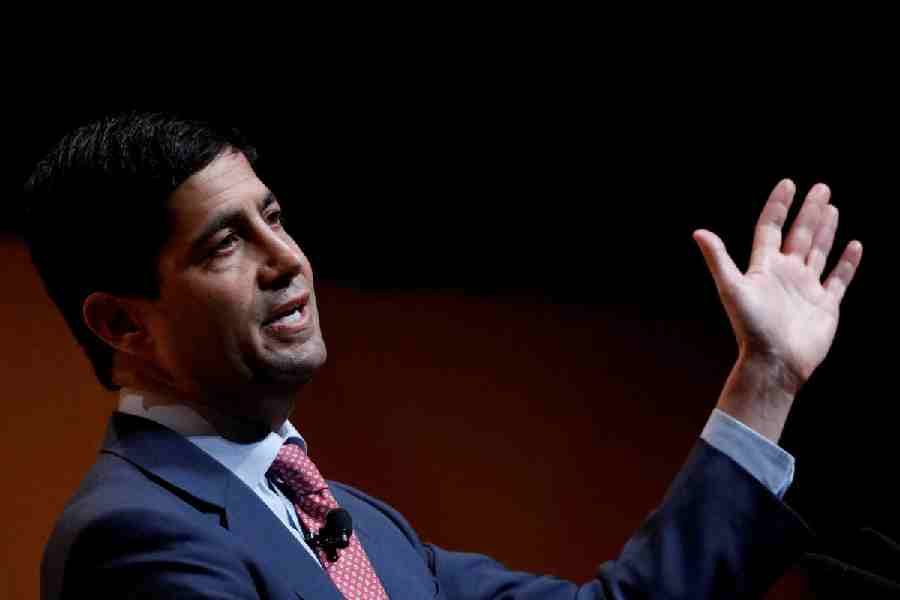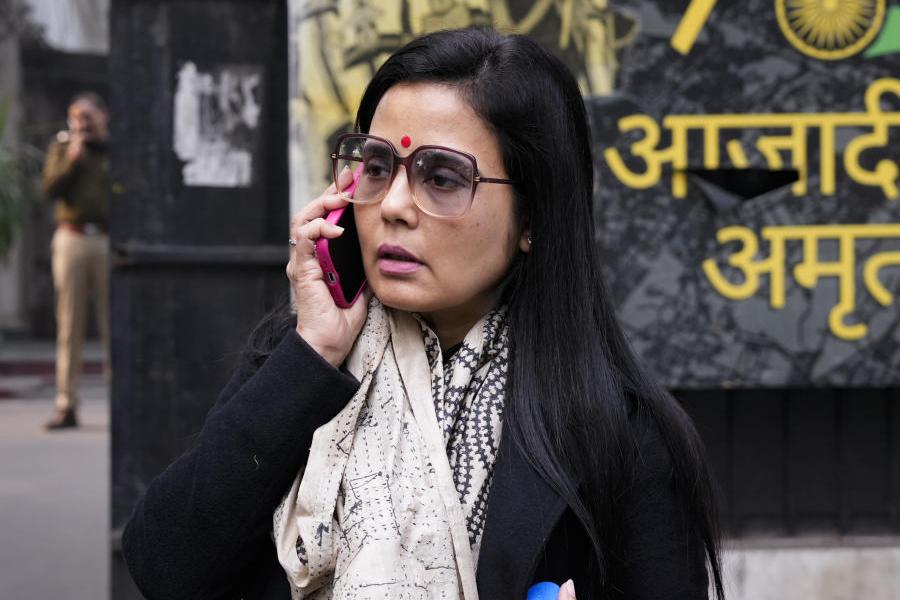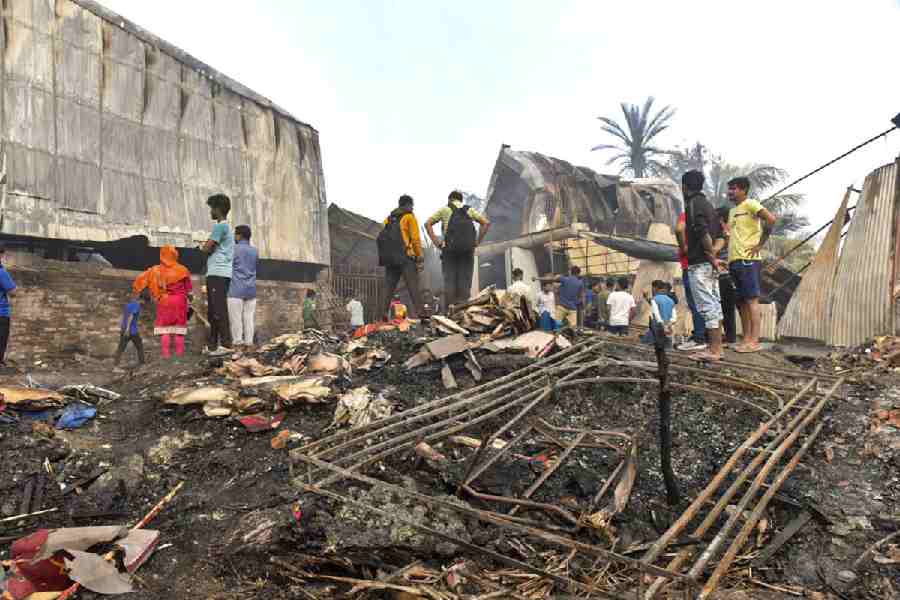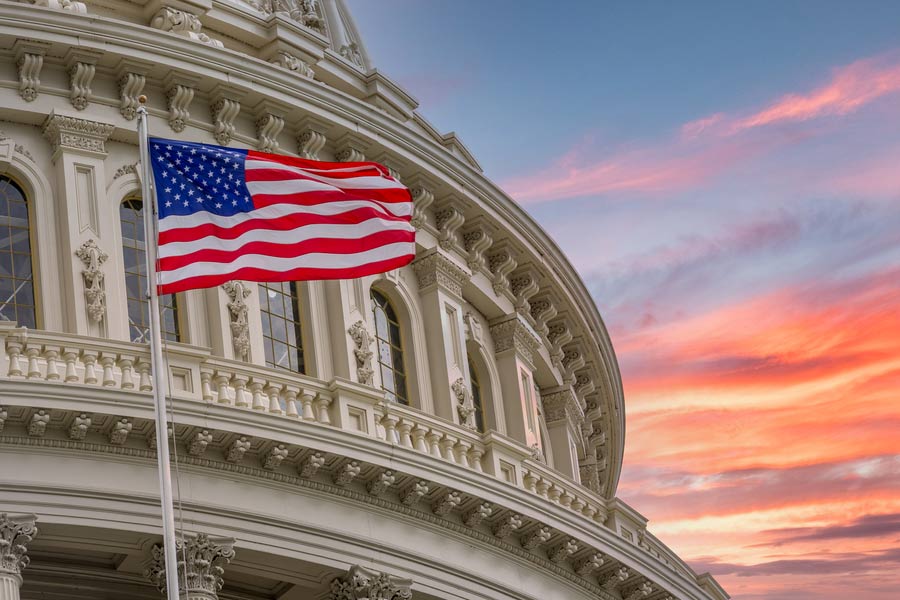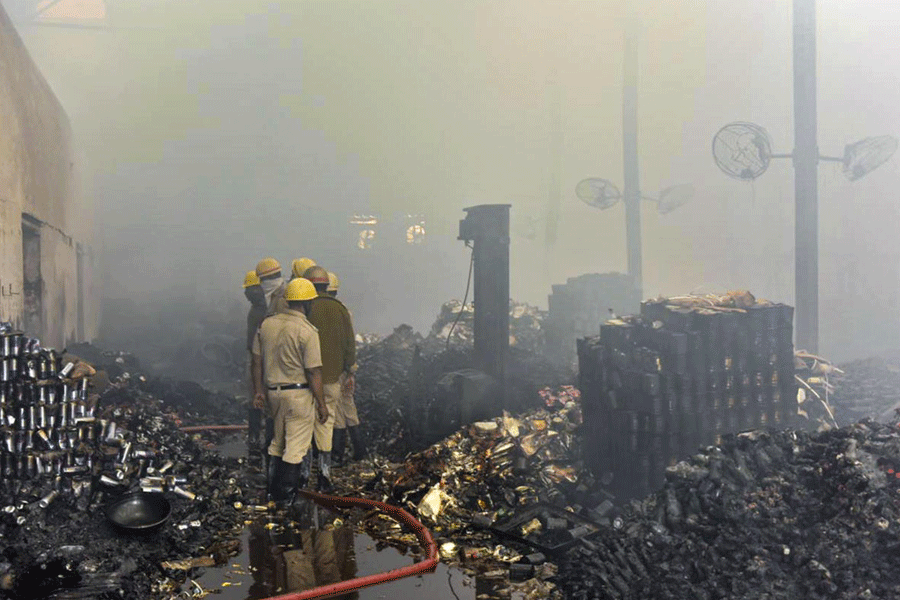The city of demonstrations has rarely seen a “bank union” protest like this.
⚫ A 42-year-old bank officer who could not remember the last time he was part of a protest meet made it a point to turn up because he is “worried about my job and my family”.
⚫ An economics graduate from Presidency University made his presence felt because “there are two broad groups in the country right now — bekaar ar sambhabyo bekaar (the jobless and the about-to-be jobless)”.
⚫ The leader of a self-help group of women making clay dolls in Nadia attended because she is worried that once privatised, banks will no longer give her loans at an affordable interest rate and without collateral. The group of 50 women started out at the crack of dawn and pooled the money for the trip to the city.
⚫ Members of the “No Vote to BJP” campaign took the stage and raised slogans that ended with “Ei BJP aar na (No more of this BJP)”.
Students, rights activists, self-help group members and young bank officers were some of the uncommon faces at a demonstration of bank unions at Dalhousie on Tuesday against the Centre’s proposal to privatise public sector banks.
The United Forum of Bank Unions (UFBU), an umbrella body of nine unions, organised the demonstration as part of a two-day nationwide strike that ended on Tuesday.
If the common “adversary” was the government at the Centre that was described as “anti-people”, a binding factor was fear of an uncertain future.
Among the participants was the 42-year-old officer of a nationalised bank in Kalyani, standing at a distance from the dais and listening to the speakers in rapt attention.
“I have come this year because I am worried about my job and my family. Privatisation would mean job cuts. I don’t have an MBA or some such degree. At this age, it will be virtually impossible for me to find another similar-paying job. I have never felt so helpless in my life,” said the officer who had opted for a job in a PSU bank because he wanted “stability”, unlike his “high-salaried” friends in the private sector.
“I studied hard to crack the banking entrance exam. When I was selected, I was happy because it was a job that promised stability. Now, that stability is under threat,” said the Kalyani resident.
If the spectre of job cuts haunted some, others feared unemployment.
“There are two broad groups in the country right now — bekaar ar sambhabyo bekaar. We are on the verge of completing our education. But we belong to the second group and have unemployment staring at us,” said Sayan Chakravarty, who has studied economics at Presidency University and is associated with an apolitical group, Janata Paksha.
Chakravarty said: “The new farm laws and the proposed privatisation of banks are two offshoots of one agenda — to offer the entire country on a platter to a select few friends of Narendra Modi.”
“The Narendra Modi government is like the wayward son of a rich family (boroloker bokhate chhele). A wise heir multiplies his ancestral wealth but a wayward son sells off ancestral properties indiscriminately. That is what the government is doing,” he added.
Rumki Dutta, the leader of the self-help group of women making clay dolls in Nadia, said she took a loan of “around Rs 6 lakh” from a PSU bank in Krishnagar as recently as April 2020.
“I got the loan at an interest rate of 10.5 per cent. I did not need to provide any security money or collateral. What if the new private bank (as proposed by the government) refuses to give me loans at the earlier rate or demands collateral security?” asked Dutta.
Dutta was part of a group of more than 50 women who had left home around 5am on a bus to reach the venue of the demonstration. All the women contributed to collect “around Rs 10,000” needed for the travel and other expenses in Calcutta.
The women said they feared privatisation of banks would hamper “small business loans”, the “lifeblood” of self-help groups.
The “No Vote to BJP” campaigners chanted from the dais: “Chakri akhon haath-e gona; era gorur doodh-e pachchhe sona (Jobs are few, these people are busy tracing gold in cow milk).”
Members of the audience joined in, their fists raised and shouting “ei BJP aar na”.
Sayan Banerjee, a lawyer and one of the speakers, said “no street movement would be needed to defeat the BJP if the vote was fought on the agenda of economic policies and development”.
“But religion, caste, food habit and choice of clothes are injected into the discourse to divert attention from the failures of the government. Our challenge is to stick to the discourse of economic policies and lack of development. The farmers have shown how to do this,” Banerjee said.
Rights activist Sujato Bhadra said the BJP was taking the country towards a “single-party system”.
“The double-engine theory (the same party in power in the state and at the Centre) is a pointer to that end,” he said.
“A welfare state should work for the uplift of the most marginalised person. In contrast, the BJP government wants to shed all its liability,” Bhadra added.
“We have found support from so many different people across the society. The anti-people policies of the central government have united all of us,” said Soumya Datta, the general secretary of the All India Bank Officers’ Confederation, one of the nine unions that make up the UFBU.

